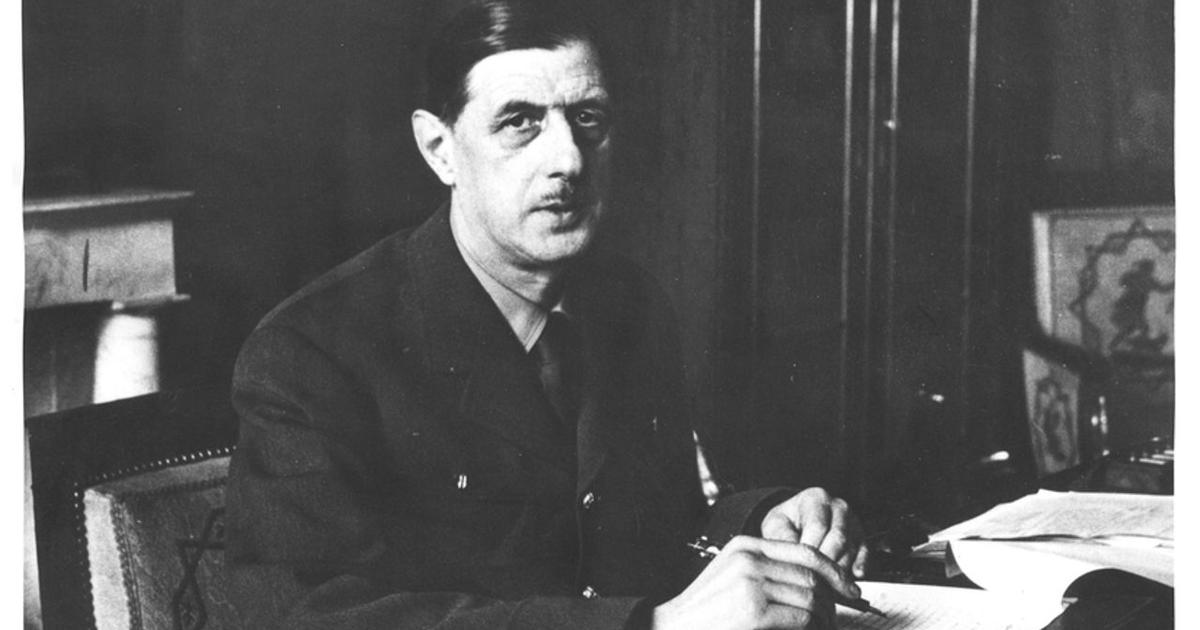Whether it is to take a position, state a doctrine or mock a political party, neologisms are legion.
Language creations and suffixes, often affixed to the surnames of politicians, then become common expressions.
However, what is the difference between "Macronist" and "Macronian"?
Hollandists, Rocardians, Chiraquians, but also Bonapartists, Maurrassians or Boulangists... The fashion for suffixes “-
ist
” and “-
ien
” in the political world is not recent.
But what nuance does it induce?
For Dominique Mataillet, author of a book entitled
On n'a pas fini d'en parle!
, the suffix "
-ist
" denotes an ideological orientation while the "
-ien
would testify to a way of thinking, a lifestyle.
To discover
Find all the results of the legislative elections
Read also
“Macroner”: this new word (not very flattering) from Ukraine
So what is a "Gaullist" and what is a "Gaullian"?
The first refers to the fervent defenders of Charles de Gaulle and his RPF.
While the "Gaullians", they are those who are inspired by the General's thought, and are sensitive to his arguments without adhering to his ideas or being partisans of them.
This linguistic duality is also illustrated by the person of Napoleon Bonaparte.
The "Napoleonicians" symbolize the faithful of Napoleon while "Bonapartism" transcends political divisions.
He advocates the figure of a charismatic, even authoritarian leader, situated above the people, and his followers do not come from a single political side.
"Macronia" and "Zemmouristan"
For five years, the term “macronie” has been coming up tirelessly in political jargon.
It designates the policy of the government under the presidency of Emmanuel Macron, as well as his close entourage.
The suffix “-ie” reveals the existence of a political system built around a personality.
Is that why it is found in a good number of names associated with a politician.
Before the “macronie”, we referred to the “hollandie” from the name of all the supporters of François Hollande and before him, to the “sarkozie” to designate the faithful of Nicolas Sarkozy.
Read also
Five expressions that we (never) know how to write
We also find this suffix in former presidential candidates to talk about the nebula of supporters around them: "Fillonie" for the candidate François Fillon, "Lepénie" for Marine Le Pen and "Mélenchonie" for the head of France Insoumise, Jean-Luc Mélenchon.
Former candidate Éric Zemmour has a surname with a different suffix, "zemmouristan", echoing Eastern countries.
A term made famous by Jean-Luc Mélenchon, since its use on the set of BFMTV in 2021. The leader of Nupes had declared: “
Zemmouristan, it exists, it is a country where women are belittled, where there is the death penalty, where homosexuals are punished
”.
Other derisive expressions
Other policies have also inspired the French language.
Let's go back in time and think back to “balladurisation”, a term constructed from the name of the former Prime Minister and candidate for the Élysée, Édouard Balladur.
To understand the meaning of this neologism, we must go back to the presidential election of 1995. Balladur's success was almost assured, but it was ultimately the RPR candidate Jacques Chirac who made it to the second round of the election.
The “balladurisation” designates since a reversal of the situation where a candidate announced as favorite does not go beyond the first round.
And the neologism persists: the failure of François Fillon in the 2017 presidential election was thus described as "balladurization" by the press.
Read also
If you know these ten Parisian places, you are a political whiz
Finally, did you know that “watercress” recalls the exhaustion of a political figure despite a thunderous start?
This expression refers to Edith Cresson's short term as Prime Minister, an ephemeral term due to lack of support in her own camp and at the Élysée and communication errors.
Former Prime Minister Jean-Marc Ayrault, because of his lack of popularity and the shortening of his mandate, was thus designated in 2012 as in the grip of a "watercress".
Conversely, some political personalities appropriate their own surnames.
Thus, Fabien Roussel, he praised the merits of "roussellement", the nickname given to the political theory that his program "France of Happy Days" would have applied.
The Communist Party candidate then declared: "
What is expensive is Macron's trickle-down theory?
Me, what I propose to you today is the Roussellement
”.

